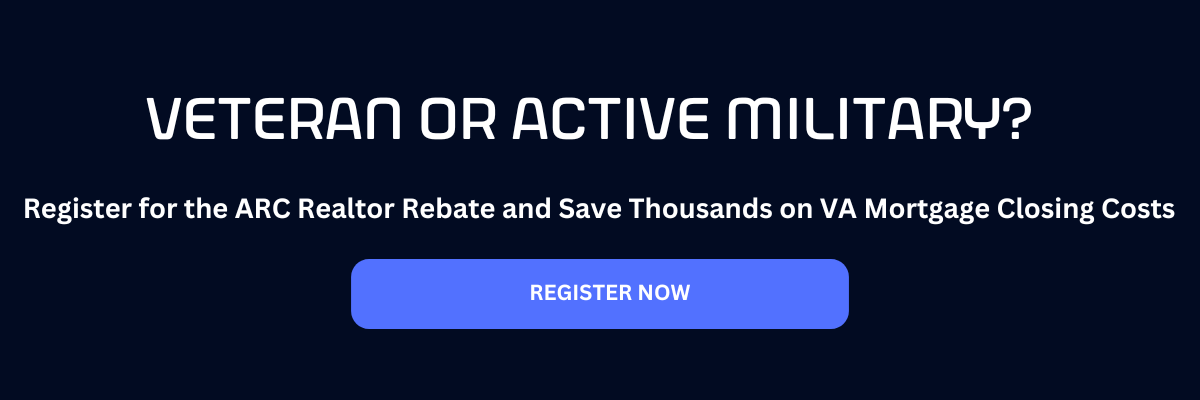VA Loan vs Conventional Loan: Understanding the Differences

Buying a home is a huge financial decision, and understanding the different mortgage options available is crucial.
Two popular choices are VA loans vs conventional loans, each with its own set of pros and cons. In this article, we’ll dive deep into the differences between these two loan types, so you can make an informed decision.
What Is a VA Loan vs Conventional Loan?
A VA loan is a mortgage loan program backed by the U.S. Department of Veterans Affairs, designed to help active-duty military personnel, veterans, and eligible surviving spouses buy, build, or refinance a home. VA loans have different eligibility requirements than a conventional loan, which is a mortgage that is not insured or guaranteed by the government.
VA Loan
VA loans offer a range of benefits, including no down payment requirement, competitive interest rates, and flexible credit requirements. These loans are available to eligible borrowers who meet the service requirements set by the VA.
Conventional Loan
Conventional loans are not backed by the government and are offered by private lenders. Conventional vs VA loans typically require a higher credit score and a larger down payment, but they also offer more flexibility in terms of loan amounts and property types.
Differences Between VA and Conventional Loans
While both VA and conventional loans serve the same purpose – helping you finance a home purchase – they differ in several key areas. The main points of distinction include:
- Eligibility requirements
- Down payment requirements
- Credit score requirements
- Mortgage insurance
- Funding fees
- Loan limits
This table helps to better outline the key differences between VA loans and conventional loans:
| Feature | VA Loans | Conventional Loans |
| Eligibility | Exclusive to veterans, active-duty service members, and select military spouses. | Available to all borrowers. |
| Down Payment | No down payment required in most cases. | Down payment can vary, typically 3-20% or more. |
| Mortgage Insurance | No mortgage insurance required. | Private mortgage insurance (PMI) required with less than 20% down payment. |
| Loan Limits | Varies by county, but generally generous. | Limits vary by county and are generally higher for conventional loans. |
| Funding Fee | Required (can be financed into the loan), percentage varies based on various factors, such as the borrower’s military category and whether it’s a first-time use. | Not applicable. |
| Credit Score Requirements | Generally more flexible, with lower minimum scores accepted. | Typically requires a higher credit score. |
| Interest Rates | Typically lower compared to conventional loans. | Can vary based on credit score, down payment, and other factors. |
| Property Requirements | Must meet VA’s Minimum Property Requirements (MPRs). | Appraisal and property requirements can vary, generally less strict than VA. |
| Loan Types | Mainly for purchasing or refinancing primary residences. | Broad range, including primary residences, second homes, and investment properties. |
| Foreclosure Avoidance | Strong commitment to assisting borrowers avoid foreclosure. | Less support compared to VA loans. |
Mortgage Requirements For Conventional Loans vs VA Loans
When comparing VA and conventional loans, it’s essential to understand the different mortgage requirements for each.
Down Payment
One of the most significant advantages of VA home loans vs conventional loans is that they often allow for little to no down payment. Conventional loans, on the other hand, typically require a down payment of at least 3%, but preferably 20% to avoid private mortgage insurance (PMI).
Credit Score
VA loans tend to have more flexible credit score requirements than conventional loans. While conventional lenders may require a credit score of 620 or higher, VA loans may be available to borrowers with lower scores, depending on their overall financial situation.
Private Mortgage Insurance
With a conventional loan, if you put less than 20% down, you’ll be required to pay private mortgage insurance (PMI). This additional cost can add up quickly over the life of the loan. VA loans, however, do not require PMI, regardless of the down payment amount.
Debt to Income Ratio
Both VA and conventional loans have debt-to-income ratio (DTI) requirements, but the VA’s guidelines are generally more lenient. The maximum DTI for a VA loan is typically around 41%, while conventional lenders may have stricter DTI limits.
Borrower Eligibility
VA loans are only available to eligible active-duty military personnel, veterans, and their spouses. Conventional loans, on the other hand, are available to any borrower who meets the lender’s credit and income requirements.
Property Eligibility
VA loans have specific property eligibility requirements, such as the home must be your primary residence and meet certain minimum property requirements. Conventional loans, while still having some restrictions, are generally more flexible in terms of property types and intended use.
Fees
VA loans come with a funding fee, which is a percentage of the loan amount that helps offset the cost of the VA loan program. Conventional loans may have various fees, such as origination fees and application fees, but they do not have a specific funding fee like VA loans.
Benefits of a VA Loan vs Conventional Loan
VA loans offer several benefits over conventional loans, including:
- No down payment required (in most cases)
- Lower credit score requirements
- No private mortgage insurance (PMI)
- Lower interest rates
- Flexible underwriting guidelines
However, traditional mortgages vs VA loans also have their advantages, such as:
- No eligibility restrictions based on military service
- Fewer property restrictions
- Potentially higher loan limits in some areas
How ARC’s Realtor Rebate Can Help
Regardless of whether you choose a VA loan or a conventional loan, the assistance of a trusted real estate professional can make a significant difference in your home-buying journey. At ARC, we understand the intricacies of both loan types and are here to help you navigate the process seamlessly.
Our unique Realtor Rebate program is designed to put thousands of dollars back in your pocket at closing and help you save money on your mortgage.
When you work with one of our experienced agents, you’ll receive a portion of the commission they earn, which can be a game-changer for your finances. This rebate can be used to cover closing costs, make a larger down payment, or even furnish your new home.
But our services go beyond just the rebate. Our dedicated team will work tirelessly to ensure you find the perfect home that meets your needs and budget. We’ll handle all the negotiations, paperwork, and logistics, so you can focus on the excitement of your new chapter.
Whether you’re a first-time homebuyer, you need to sell your house fast for a relocation, or a seasoned investor, our agents have the expertise and local market knowledge to guide you every step of the way.
We’ll help you understand the differences between VA and conventional loans, and recommend the option that best suits your unique situation.
At ARC, we’re committed to making the home-buying process as smooth and stress-free as possible. With our Realtor Rebate program and dedicated support, you can rest assured that your best interests are always our top priority.
VA Loan Vs Conventional Loan: FAQs
Are VA loans good?
Yes, VA loans are an excellent option for eligible borrowers. They offer competitive interest rates, flexible credit requirements, and the ability to purchase a home with little to no down payment.
Additionally, VA loans do not require private mortgage insurance, which can save borrowers a significant amount of money over the life of the loan.
Can you use a VA loan for any home?
No, VA loans have specific property eligibility requirements. The property must be your primary residence, and it must meet certain minimum property requirements set by the VA. The VA has limits on the maximum loan amount based on the county where the property is located.
Is it better to go with a VA loan or a conventional loan?
The answer to this question depends on your individual circumstances. If you are eligible for a VA loan and meet the service requirements, it can be a more affordable option due to the lower interest rates, no down payment requirement, and no private mortgage insurance.
However, if you do not meet the eligibility requirements or prefer more flexibility in terms of property types, a conventional loan may be a better choice.
Can you get a VA loan with bad credit?
While VA loans generally have more flexible credit requirements than conventional loans, having a low credit score can still impact your ability to qualify.
The VA does not have a strict minimum credit score requirement, but lenders may impose their own credit score minimums. It’s essential to work with a lender who understands the VA loan program and can evaluate your overall financial situation.
Final Thoughts
Choosing between a VA loan vs a conventional loan is a personal decision that depends on your unique circumstances.
If you are eligible for a VA loan and meet the service requirements, it can be an excellent option, offering competitive interest rates, flexible credit requirements, and the ability to purchase a home with little to no down payment.
However, if you do not meet the eligibility criteria or prefer more flexibility in terms of property types, a conventional loan may be a better choice.
The ARC Realtor Rebate Program can help make the process of buying a new home as smooth as possible, enabling you to potentially save thousands of dollars at closing.
Contact ARC Relocation today for more information about the Realtor Rebate Program, or to help you find a moving company for your upcoming move.

